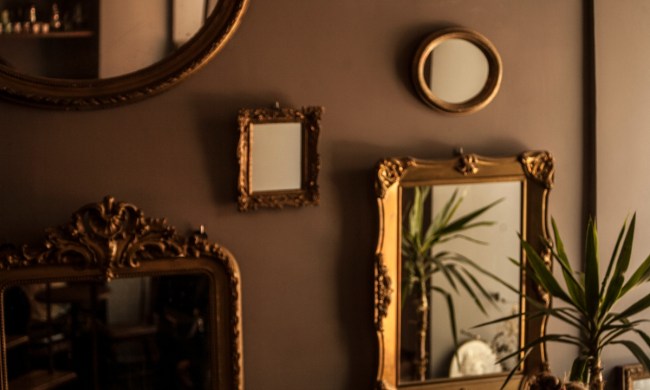Washing and drying laundry at home is good for most of your clothing, but not for everything. Any clothing with a “dry clean only” tag should go to a professional dry cleaner. Machine or even hand washing could damage the color, fabric, or fit of the garment.
Some of the types of items best left to a dry cleaner include:
- Lined clothing, including jackets, coats, and pants
- Non-colorfast fabrics
- Pleated items
- Most items made of: silk, wool, taffeta, velvet, acetate, and fabric blends, which include silk, rayon, or wool
- Suede and leather clothing
- Draperies
 Dry cleaning basics
Dry cleaning basics
- To avoid setting stains and odors, stained clothing should be taken to the dry cleaner as soon as possible. Note: never pretreat stains at home. The special solvents that dry cleaners use are made to treat specific stains, and they are better equipped to tackle the stain without your efforts.
- Make stains easy to find by marking the stain with a pin or piece of tape and let the dry cleaner know what likely caused the stain (if you know).
- For multi-piece items, like suits, dry clean them at the same time to avoid fading at different rates.
- Don’t overdo it when it comes to dry cleaning. Wool items can be worn up to six times before dry cleaning, while a wool suit should be cleaned just once or twice per year.
- Take garments out of the plastic dry-cleaning bag once you bring the cleaned items home. Keeping the clothing inside the bag could result in discoloring or yellowing of garments.
- Swap out dry cleaner’s wire hangers with plastic, padded, or wooden ones. Wire hangers have the potential to rust or stain clothing.
- If the dry cleaner has stuffed sleeves with paper, keep the paper inside until it’s ready to be worn. The stuffing will help keep the garment’s shape until you’re ready to wear it.
 Not all dry cleaners are the same—this is how to pick the best one for you!
Not all dry cleaners are the same—this is how to pick the best one for you!
Quality cleaning
Hands down, the most important thing to consider when searching for a dry cleaner is the quality of their work. It’s probably easiest to try them out yourself with a single item or small order to minimize putting your valuable items at risk.
Do a little research. Ask what type of solvents the dry cleaner uses and which dry cleaning techniques are used. Find out how long they’ve been in business, and visit sites like Yelp! to see what customers have to say. Check out the dry cleaner’s website to see what services they offer and perhaps a pricing list. Never be afraid to ask the dry cleaner questions, by phone or in person. And, because mistakes can always happen, make sure you discuss how your dry cleaner handles loss or damage to your clothing.
Pricing
The average cost of dry cleaning varies greatly. For example, according to data, to dry clean a man’s two-piece wool suit, the price ranges from $1.99 to $49. This vast disparity in pricing is both geographically related and a matter of quality.
Just because a dry cleaner offers the lowest price doesn’t mean they are the best choice. Sometimes you do, in fact, get what you pay for. Look for competitive rates, but not necessarily the lowest rate. The best dry cleaner offers a good value on good services.
Convenience
The right dry cleaner is geographically convenient as well as offering hours compatible with your schedule. Many dry cleaners operate under regular business hours: 9 a.m. to 5 p.m., which could present a problem for you if you work full-time outside of the home.
Review parking availability for your potential dry cleaner. The last thing you’ll want to do is spend time searching for street parking or open spots in a small lot.
Delivery
Consider looking for a dry cleaner who offers delivery service, but make sure that they deliver during hours that work with your schedule. Ask if delivery is free or what the charge is for home delivery. Sometimes the convenience makes any extra cost worthwhile.
Other services
It’s always good to have the option for wash & fold services or simple tailoring and repairs even if you don’t plan to use them. You never know when you may require additional services from your dry cleaner, and it’s best to work with someone you already use and trust.
Once you’re comfortable with the dry cleaning store’s services, finding a dry cleaner who offers a sense of professionalism and courtesy will keep you coming back. Establishing a friendly rapport, confidence, and trust can sometimes be way more important than the cost of dry cleaning.
Follow our tips when making your selection and rely on friends’ and neighbors’ recommendations, but ultimately building a relationship with your dry cleaner comes down to service and trust. Your valuable clothing items deserve nothing less.
 Dry cleaning basics
Dry cleaning basics Not all dry cleaners are the same—this is how to pick the best one for you!
Not all dry cleaners are the same—this is how to pick the best one for you!


